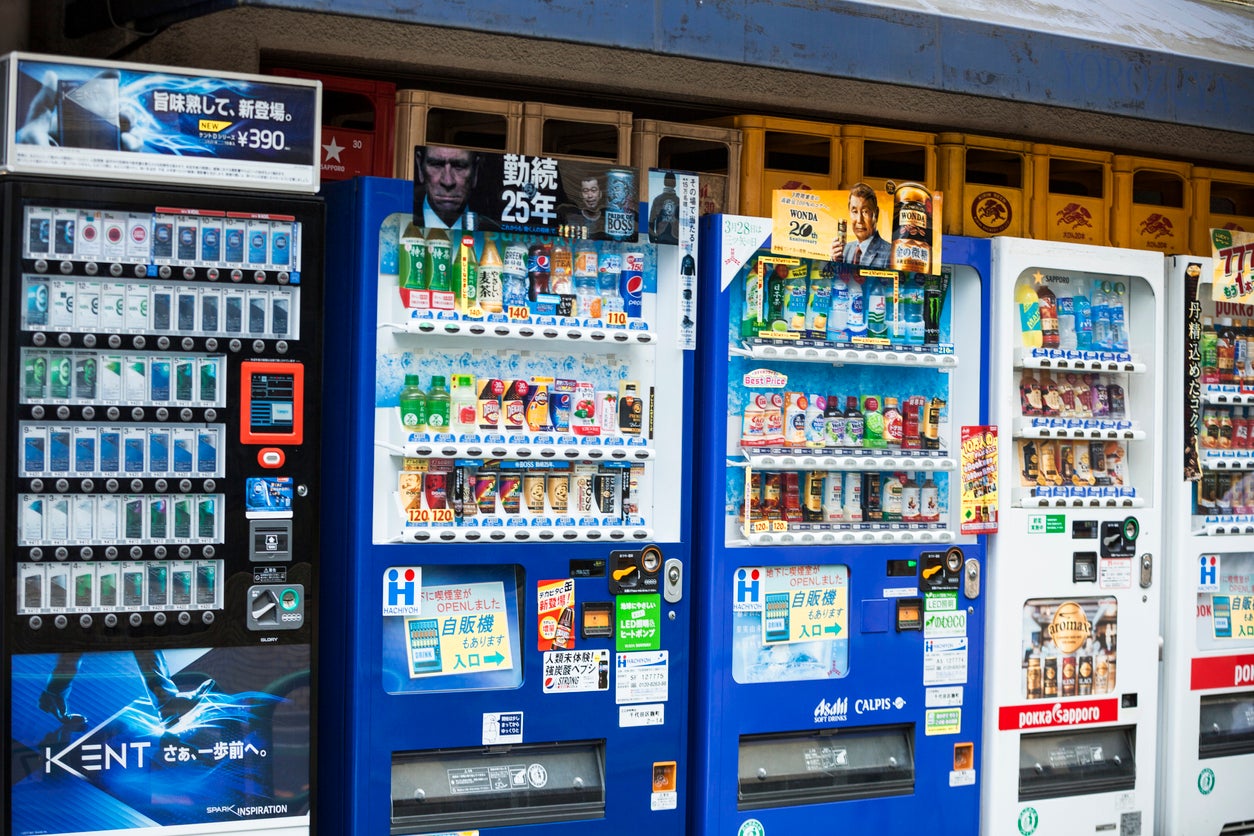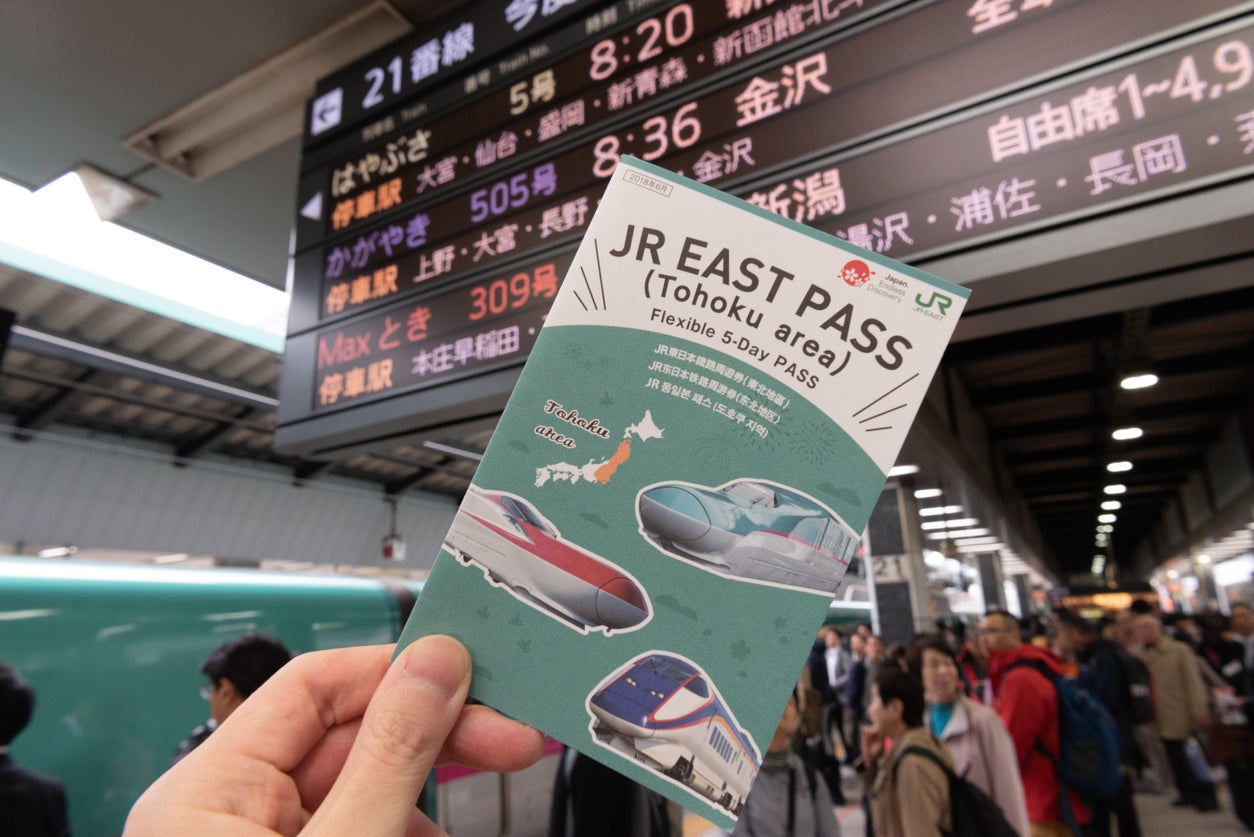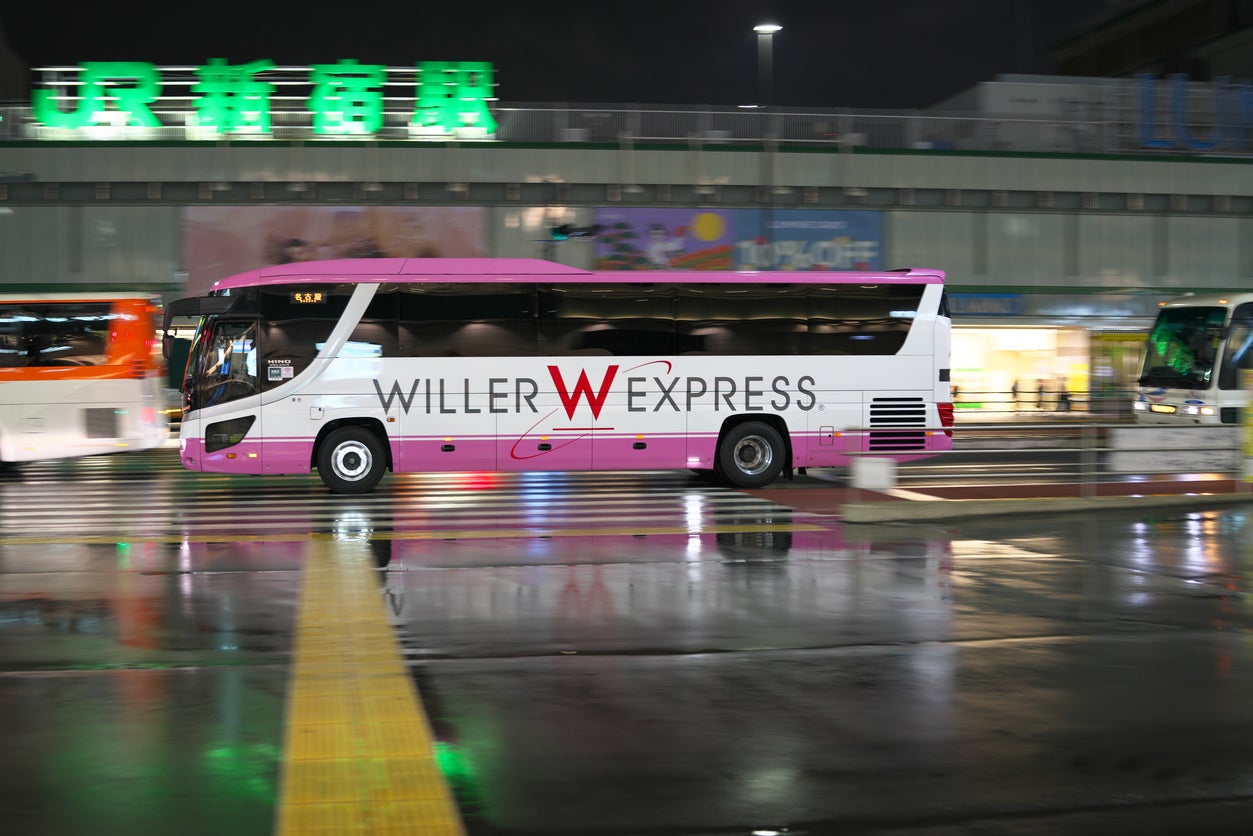The Independent's journalism is supported by our readers. When you purchase through links on our site, we may earn commission.
Japan travel: Eight ways to save money when visiting this pricey tourist favourite
To make your holiday cash go further in this notoriously spendy destination, seek out unusual shop types and know your public transport, advises Tamara Hinson


We’ve decided it’s high time to bust the myth that you’ll need to be prepared to splash some serious cash to travel around Japan. Don’t get us wrong – it might not be the cheapest Asian country to explore, but there are various ways to cut costs, many of which relate to following the lead of locals.
Embrace vending machine coffee
There’s not much you can’t buy from a Japanese vending machine, whether it’s a brand new shirt, refrigerated flowers or a pair of pants. Don’t discount the hot drinks sold by these machines either. The coffee, tea and cocoa drinks aren’t just significantly cheaper than the stuff sold in cafés – they’re also top quality and piping hot. Extra buttons allow you to control how much sugar and milk is added, as well as the liquid’s thickness.

Shop for fresh food later in the day
Japan is famous for its fresh food, much of which you’ll find in department store depachikas – spectacular basement food halls where you’ll find everything from yakitori (grilled meat skewers) to taiyaki (fish-shaped cakes filled with azuki red beans). The ready-to-eat, fresh fish and meat counters are where you’ll find the best discounts, especially towards the end of the day. Most depachikas and supermarkets slash the cost of their freshest food by 50 per cent just before closing time – the discount stickers generally start appearing around 7pm and the discounts increase as closing time nears.
Visit a 100-yen shop
You’ll find 100-yen shops in every city and town. Prices often stray slightly above the 100-yen mark, but they still offer fantastic value. At the upper end you’ve got Daiso, a popular chain that you’ll now find in cities such as Seoul and Bangkok, too. But the unbranded 100-yen stores you’ll see across Japan sell the widest range of items, from toiletries and food to socks and stationery. Keep an eye out for the “Lawson”-branded 100-yen stores, too – these sell handy bits for self-caterers such as fruit, vegetables and milk, at prices that are around 70 per cent lower than those of Japanese supermarkets.

Use your JR Pass tactically
JR (Japanese Rail) Passes, which cover all trains operated by the company JR, are brilliant value and can be purchased for seven, 14 or 21-day periods. However, they must be purchased before you’re in Japan (after ordering one, you’ll receive something called an exchange order, which you then swap for the actual pass at Japanese train stations). If you’re spending your entire holiday in Tokyo, where a single metro fare will set you back around £1.50, a JR Pass won’t save you money. But if you’re visiting multiple parts of the country, the savings quickly stack up – especially as the pass also covers buses, airport trains and ferries operated by JR. For example, a seven-day JR pass starts at £173 – just £13 more than the £180 starting rate for a return from Tokyo to Osaka, one of Japan’s most popular railway routes. If you’re not sure whether the pass is right for you, check out the JR Pass calculator, which can be found here: jrpass.com/farecalculator.
Travel on overnight buses
All too often Japan’s long-distance coach services are overlooked, but they offer a cheap, brilliant and scenic way to travel around Japan – if you can bag an overnight route, it’s also saving you a night in often pricey accommodation. Many of them are covered by the JR Pass, too. If you’re planning on travelling by coach, the best websites for researching routes and booking tickets include willerexpress.com, VIPLiner and highway-buses.jp. Willer Express’s coaches include the fabulously luxurious ReBorn coaches, which launched in 2020: guests sit in personal pods kitted out with reclining seats, footrests, electrical outlets, tables and blankets. A seat on one of these coaches for a one-way journey from Tokyo to Kyoto will set you back around £43 – significantly less than the same journey on the Shinkansen (bullet train), which costs around £80.

Use kinken shops
Kinken shops are second-hand shops that sell everything from jewellery to electronics, but the majority of people come here for travel passes, train tickets and tickets for sporting events, concerts and plays that have been (legally) resold. In fact, many kinken shops sell only train or bus passes and event tickets. The former are often sold with a discount of around 90 per cent, while tickets for events are slightly less heavily reduced (but you’ll still spot some bargains, especially for sold-out gigs and sports fixtures). Kinken shops are usually found in or near train stations and shopping malls and are quite easy to spot – windows will be plastered with the tickets available for purchase, beneath a sign reading “金券ショップ” (ticket shop). If in doubt, ask an employee at the hostel or hotel you’re staying at.
Crash at a ‘manga kissa’ café
Hotels in Japan can set you back a considerable amount. If you’ve got an overnight stopover in a city and don’t fancy forking out for a room proper, consider killing time in a manga kissa (kissa is short for kissaten, which means café) instead. These cafés are usually open 24 hours a day, and you can choose how many hours you want to stay for. Once you’ve paid for your chosen time slot, you’ll be shown to a semi-private booth where you’re free to nap (most have reclining chairs), read manga graphic novels, play video games or watch a movie. Many cafés have showers or even private rooms kitted out with tatami mats – a bit like a quirky airport lounge. Expect to pay between £11 and £22 for a 10-hour package.
Learn some Japanese
Knowing even a few basic words and phrases can be a great way to avoid unnecessary extras when eating and drinking out. Feasting on ramen in a restaurant but still feeling hungry after your meal? Ask for a “kaedama” and an extra portion of noodles will be added to your broth – a cheaper alternative to an entire second dish. When ordering drinks in cafés, avoid wasting your cash on wrong orders by remembering that “aisu” drinks are iced ones. The words oome (more), sukuname (less) and nashi (none) are useful when it comes to added extras such as milk and sugar.
Join our commenting forum
Join thought-provoking conversations, follow other Independent readers and see their replies
Comments
Bookmark popover
Removed from bookmarks